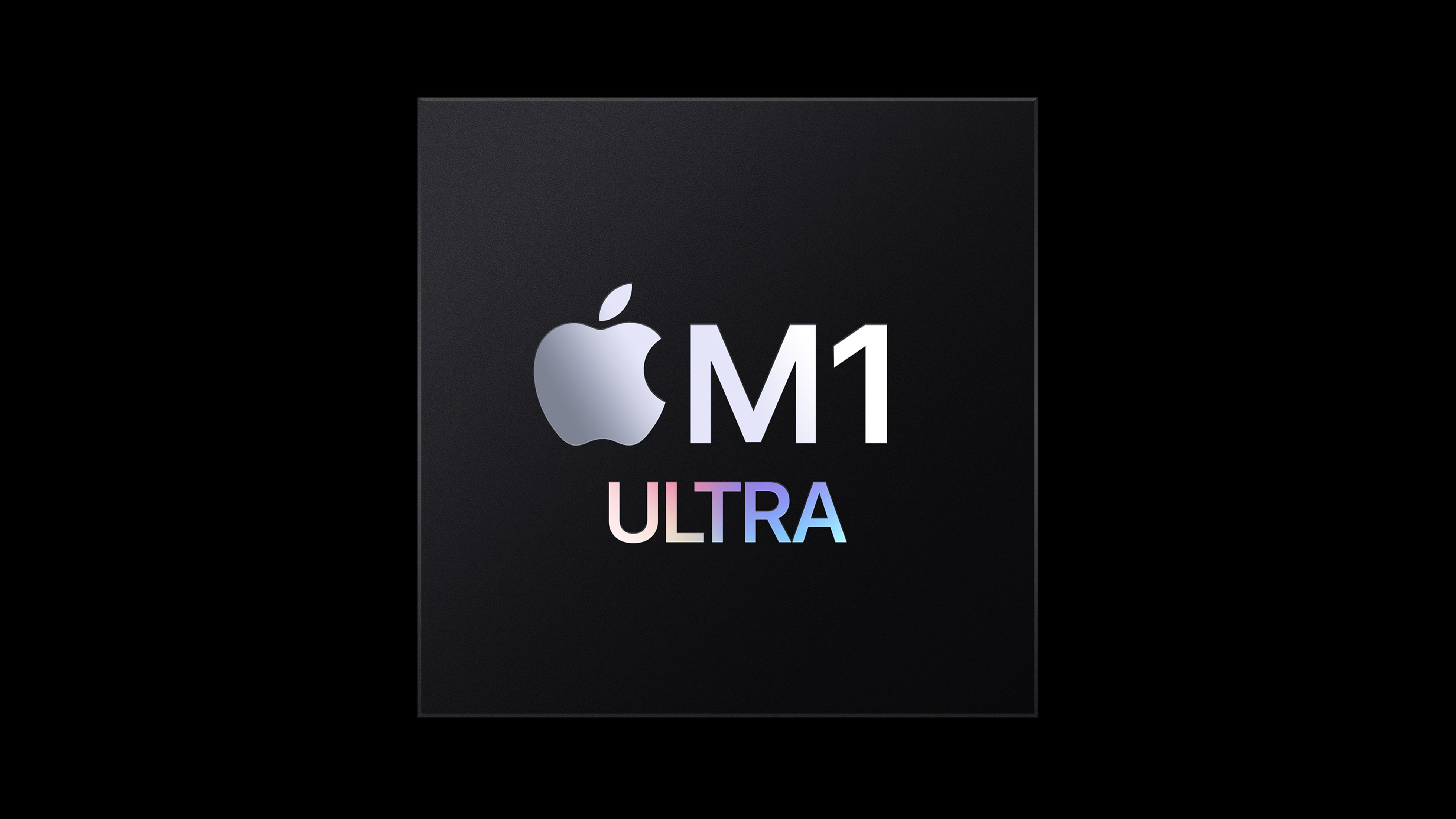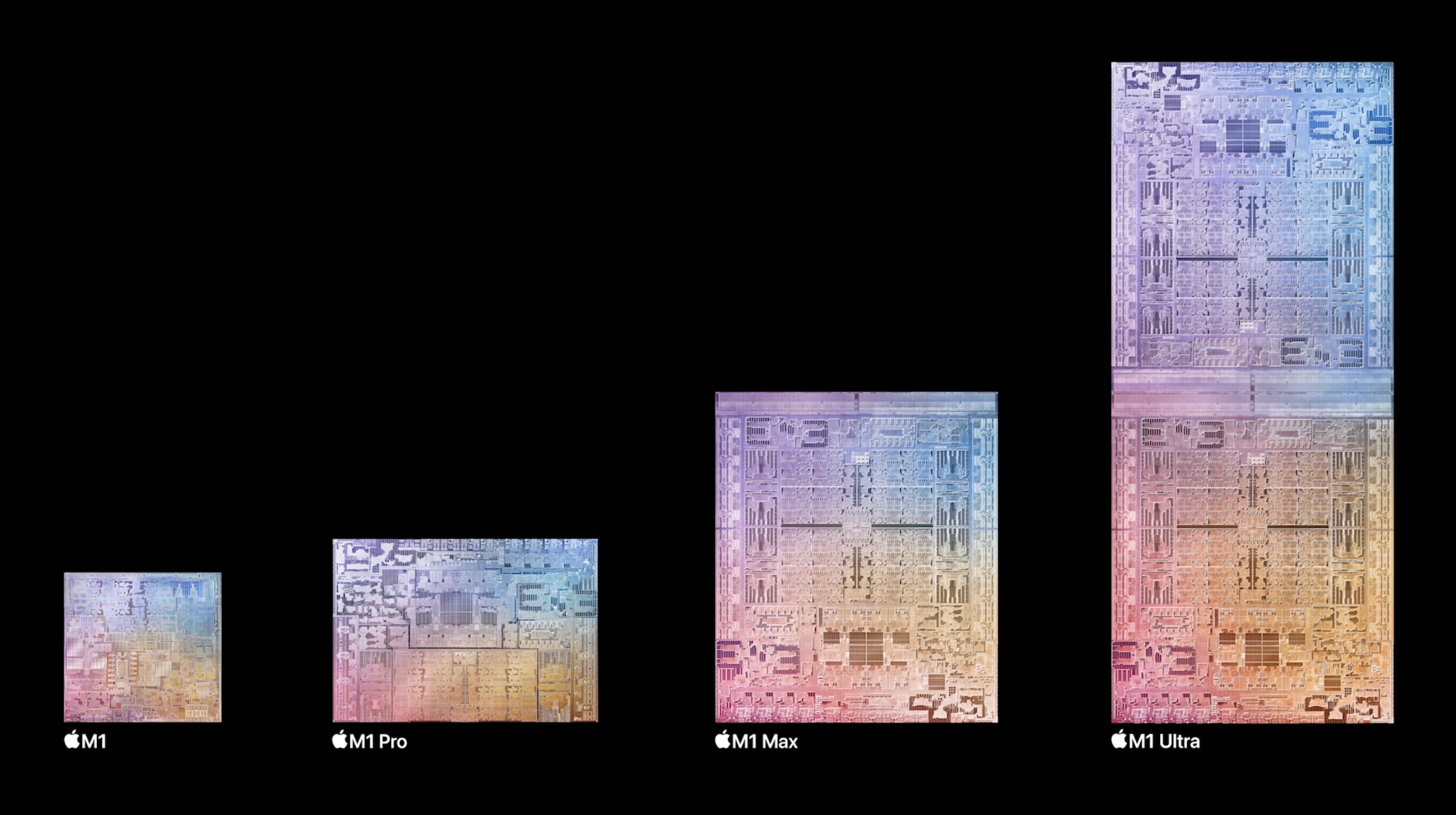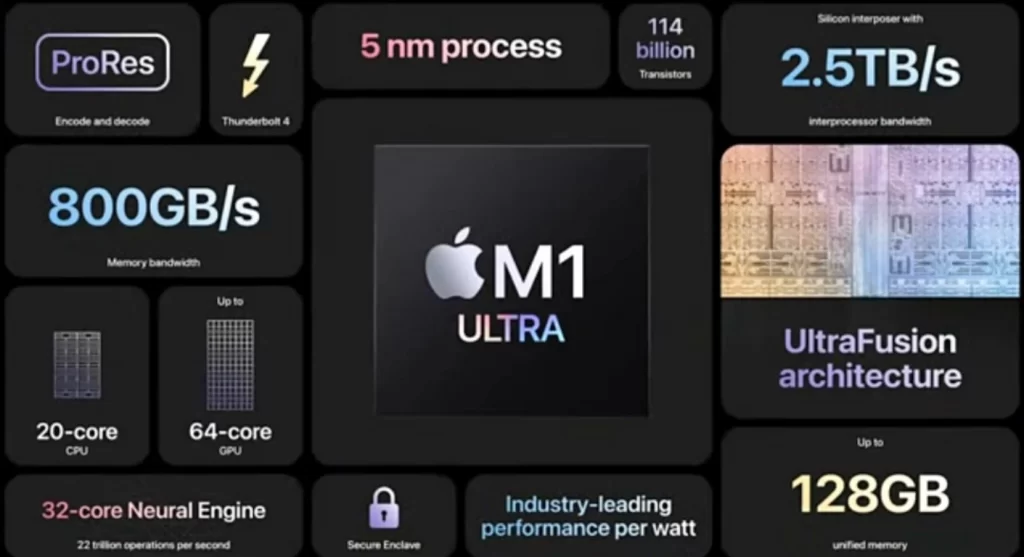
The much anticipated Apple event took place today and as you may already, the introduction of new Apple products followed. Apple introduces us to the next generation of chips. The company announces the new M1 Ultra SoC (system on a chip), this happens to be the latest addition to the M1 chipset lineup by Apple. Reports say the new M1 Ultra possess abilities more powerful than the M1, M1 Pro, and M1 Max chips earlier released.

The M1 Ultra possesses Apple’s UltraFusion architecture that allows Apple to fuse together two separate M1 Max chips into a single, massive SoC, thanks to the 2.5TB/s inter-processor connection that the M1 Max offers. The new M1 Ultra design doubles virtually all the specs the M1 Max chip possesses while it also offers eight times the performance of the regular M1. With 20 CPU cores (16 performance and four efficiencies), 64 GPU cores, a 32-core Neural Engine for AI processing, and up to 128GB of RAM.

“M1 Ultra is another game-changer for Apple silicon that once again will shock the PC industry. By connecting two M1 Max die with our UltraFusion packaging architecture, we’re able to scale Apple silicon to unprecedented new heights,” said Johny Srouji, Apple’s senior vice president of Hardware Technologies. “With its powerful CPU, massive GPU, incredible Neural Engine, ProRes hardware acceleration, and a huge amount of unified memory, M1 Ultra completes the M1 family as the world’s most powerful and capable chip for a personal computer.”
During the launch, Apple reveals some massive performance claims for its new, first of its kind, massive chip. Apple claims the new M1 Ultra offers better CPU performance compared to a “16-core PC desktop.” While using 100W less power, along with comparable GPU performance than the “highest-end discrete GPU” while using 200W less power. Apple however didn’t say which competitors it’s testing the abilities of the M1 Ultra against, however fingers are crossed for the verifications of these claims of the technology giant.
The new M1 Ultra is set to make its first debut in the new Mac Studio desktop that Apple also announced at its event. Let’s take you on a smooth memory lane, of course, you recall that the original M1 chip first debuted in a MacBook Air, entry-level MacBook Pro, and Mac Mini, however it eventually made its way to Apple’s colourful iMac relaunch and the 2020 iPad Pro tablet, too, so it’s possible that we’ll see the M1 Ultra show up of other Apple desktop computers (like an even more powerful new Apple Silicon-powered Mac Pro) in the coming months.
Discover more from TechBooky
Subscribe to get the latest posts sent to your email.










